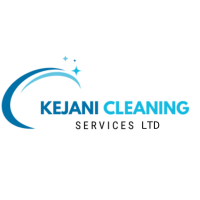Introduction
Maintaining office cleanliness in educational institutions is paramount for creating a conducive learning environment. Office spaces within schools, colleges, and universities play a critical role in the administrative and operational efficiency of these institutions. The importance of office cleaning in educational settings cannot be overstated, as it directly impacts the health, productivity, and overall well-being of both staff and students.
Promoting Health and Hygiene
Educational institutions are bustling with activity, hosting numerous students, faculty, and staff daily. This constant movement makes these environments prone to the spread of germs and illnesses. Regular and thorough cleaning of office spaces is essential to mitigate this risk.
Reducing the Spread of Illness
A clean office environment helps reduce the spread of infectious diseases. Germs can easily transfer from one person to another via commonly touched surfaces such as doorknobs, desks, and computer keyboards. Implementing a rigorous cleaning protocol that includes the disinfection of these high-touch areas can significantly lower the incidence of illnesses, leading to fewer sick days and a more consistent administrative operation.
Improving Indoor Air Quality
Office cleaning in educational institutions also plays a vital role in maintaining good indoor air quality. Dust, mold, and other airborne particles can accumulate if cleaning is neglected, leading to respiratory issues and allergies. Regular vacuuming, dusting, and air purification can enhance air quality, providing a healthier environment for everyone in the institution.
Enhancing Productivity and Efficiency
A clean office is not just about health; it also affects the productivity and efficiency of administrative staff. A cluttered, dirty workspace can be distracting and stressful, which can hinder performance and morale.
Creating an Organized Environment
An organized and clean office space fosters a sense of order and professionalism. When everything is in its place, staff can focus better on their tasks without the distraction of clutter. This organization can lead to improved efficiency, as time is not wasted searching for misplaced documents or office supplies.
Boosting Employee Morale
A clean working environment can also boost employee morale. Staff members are likely to feel more valued and respected when they work in a well-maintained space. This positive atmosphere can increase job satisfaction and motivation, leading to higher productivity and lower turnover rates.
Ensuring a Positive Impression
The cleanliness of office spaces within educational institutions also impacts how these institutions are perceived by visitors, including prospective students, parents, and stakeholders.
Creating a Welcoming Atmosphere
First impressions are crucial, and a clean office space creates a welcoming and professional atmosphere. Visitors are more likely to have a positive perception of the institution when they see that it takes pride in maintaining a clean and orderly environment. This perception can influence their overall opinion and decision-making process, particularly for parents and students considering enrollment.
Reflecting Institutional Standards
The state of the office spaces reflects the institution’s standards and values. A well-maintained office indicates a commitment to excellence and attention to detail, qualities that are essential in the educational sector. This reflection can enhance the institution’s reputation and credibility.
Supporting Sustainability Initiatives
Educational institutions are increasingly embracing sustainability initiatives, and office cleaning practices can play a significant role in these efforts.
Using Eco-Friendly Cleaning Products
Adopting green cleaning practices, such as using eco-friendly cleaning products, can reduce the environmental footprint of the institution. These products are free from harmful chemicals, making them safer for both the environment and the people using the spaces.
Reducing Waste
Implementing a comprehensive cleaning and recycling program can also help reduce waste. Encouraging recycling and proper disposal of waste materials within office spaces contributes to the institution’s overall sustainability goals. This practice not only benefits the environment but also educates students and staff about the importance of sustainability.
Implementing Effective Cleaning Protocols
To achieve the benefits of office cleaning in educational institutions, it is crucial to implement effective and efficient cleaning protocols.
Developing a Cleaning Schedule
A well-structured cleaning schedule ensures that all areas are regularly and thoroughly cleaned. This schedule should include daily, weekly, and monthly tasks, covering everything from basic cleaning to more intensive tasks like carpet cleaning and window washing.
Training Cleaning Staff
Proper training of cleaning staff is essential to maintain high standards of cleanliness. Staff should be knowledgeable about the correct use of cleaning products and equipment, as well as health and safety protocols. Continuous training ensures that they are up-to-date with the latest cleaning techniques and standards.
Utilizing Professional Cleaning Services
In many cases, outsourcing to professional office cleaning services can be an effective solution. These services have the expertise, equipment, and personnel to maintain high cleanliness standards. They can provide tailored cleaning plans that meet the specific needs of educational institutions, ensuring a thorough and consistent approach.
Conclusion
In conclusion, the importance of office cleaning in educational institutions encompasses health, productivity, impression, and sustainability. Regular and thorough cleaning protocols not only promote a healthier environment but also enhance productivity, create a positive impression, and support sustainability efforts. By prioritizing cleanliness, educational institutions can ensure that their administrative operations run smoothly and effectively, contributing to their overall success and reputation.

0 Comments